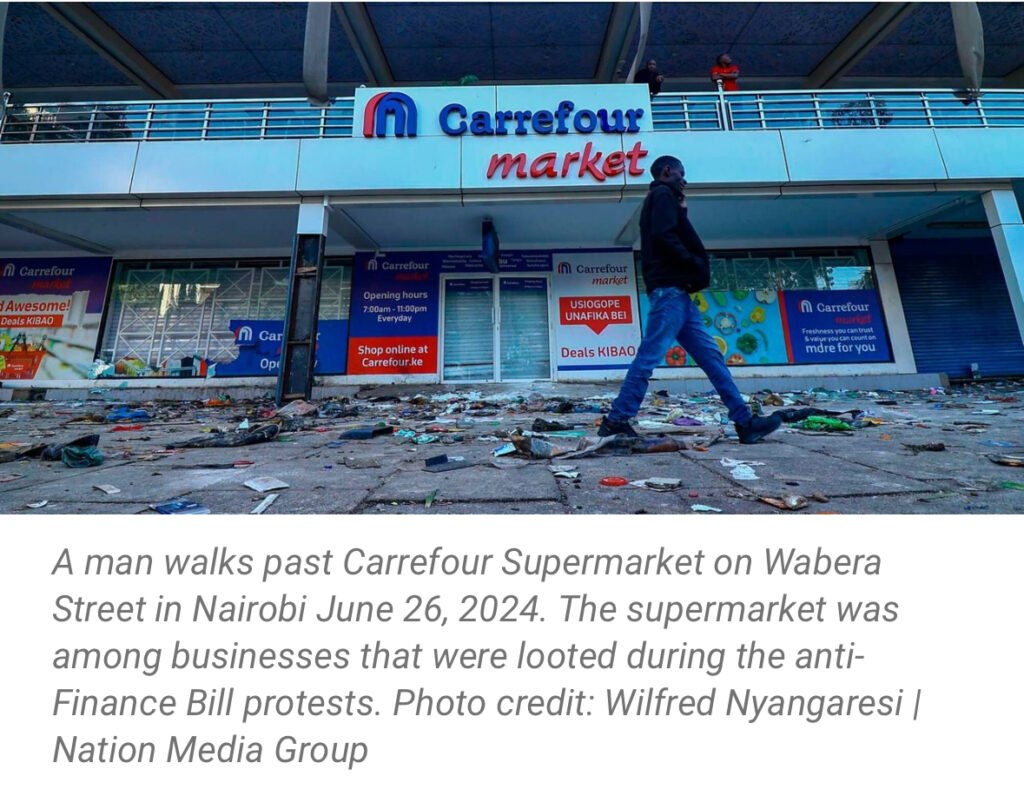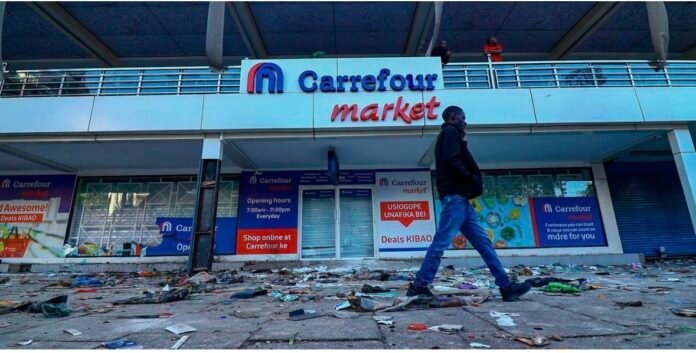By Horn Africa News Staff
Nairobi – Escalating conflicts across key African nations — namely Kenya, Sudan, and the Democratic Republic of Congo (DRC) — are sounding alarm bells for regional business communities, trade associations, and economic blocs. Analysts warn that the instability is threatening cross-border investments, disrupting supply chains, and shaking investor confidence throughout the East and Central African regions.

Kenya’s Internal Political Tensions Raising Risks
Kenya, often seen as East Africa’s economic hub, has recently been rocked by political unrest following contested electoral reforms and rising tensions between opposition leaders and government forces.
Sporadic protests and violent clashes in major cities like Nairobi, Kisumu, and Mombasa have disrupted normal business operations, with curfews and internet shutdowns adding to the challenge.
“Kenya’s role in the region is significant — its ports, banking systems, and logistics infrastructure serve neighboring countries like Uganda, Rwanda, and South Sudan,” said Dr. Wycliffe Makori, an economist at the University of Nairobi. “Any disruption in Kenya has a ripple effect on the entire region.”
Transport and logistics firms have reported delays at the Port of Mombasa, and regional supermarkets and exporters are facing shipment cancellations and increased insurance costs due to perceived political risk.
Sudan’s Escalating Civil War: A Humanitarian and Economic Catastrophe
Sudan’s ongoing civil war, now in its second year, is showing no signs of resolution. Fighting between the Sudanese Armed Forces and the paramilitary Rapid Support Forces (RSF) has paralyzed major cities, displaced millions, and caused severe damage to infrastructure.
Businesses, particularly in Khartoum and Darfur, have either closed down or shifted operations abroad. Cross-border trade between Sudan and Ethiopia, Chad, and South Sudan has sharply declined due to insecurity and road blockages.
“Trade routes are completely inaccessible. Even humanitarian aid is struggling to get through,” said Rania Abdallah, a Sudanese logistics coordinator based in Port Sudan. “Sudan’s regional role is diminishing rapidly, and that impacts both supply and demand across multiple borders.”
DRC’s Persistent Instability Worsens Trade Prospects
Meanwhile, in the Democratic Republic of Congo, fighting between government troops and rebel groups — especially in the eastern provinces like North Kivu and Ituri — continues to threaten mining operations and regional trade corridors.
The DRC is rich in minerals like cobalt and copper, critical for global technology and clean energy industries. However, ongoing insecurity and displacement of communities have slowed down mining exports and deterred foreign investment.
Additionally, roads connecting the DRC to Rwanda, Uganda, and Burundi are frequently targeted by armed groups, limiting trade flow and increasing transportation costs.
“Eastern DRC’s instability affects not only local businesses but also companies in Rwanda and Uganda that depend on goods and raw materials from Congolese territory,” said Frida Kambale, a Goma-based trade consultant.
Regional Economic Integration at Risk
The overlapping crises in Kenya, Sudan, and the DRC are raising concerns among regional bodies like the East African Community (EAC), the Intergovernmental Authority on Development (IGAD), and the African Continental Free Trade Area (AfCFTA).
“With three key members or neighbors in crisis, integration efforts are stalling,” warned Andrew Mwangi, policy advisor at the EAC Secretariat in Arusha. “Harmonizing tariffs, easing movement of goods, and creating a single market become extremely difficult in such conditions.”
Businesses Urge for Diplomacy and Peace
Regional business leaders are calling for stronger diplomatic efforts, peace negotiations, and international support to stabilize the situation. Chambers of commerce across East Africa have urged African Union leaders to take swift action to prevent a wider economic collapse.
“Peace is the foundation of prosperity. Without it, the vision of a united and economically strong Africa cannot be realized,” said Sylvia Tumusiime, president of the Uganda National Chamber of Commerce.
As the continent battles multiple crises, the resilience of businesses will be tested, and the cost of inaction could be devastating not just for those directly affected — but for the region at large.





